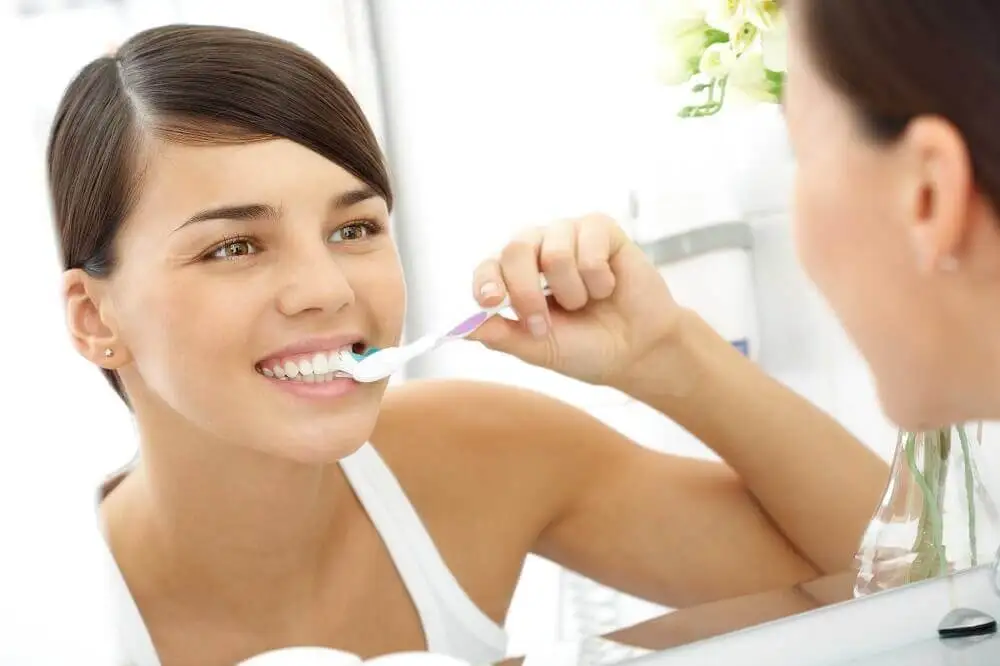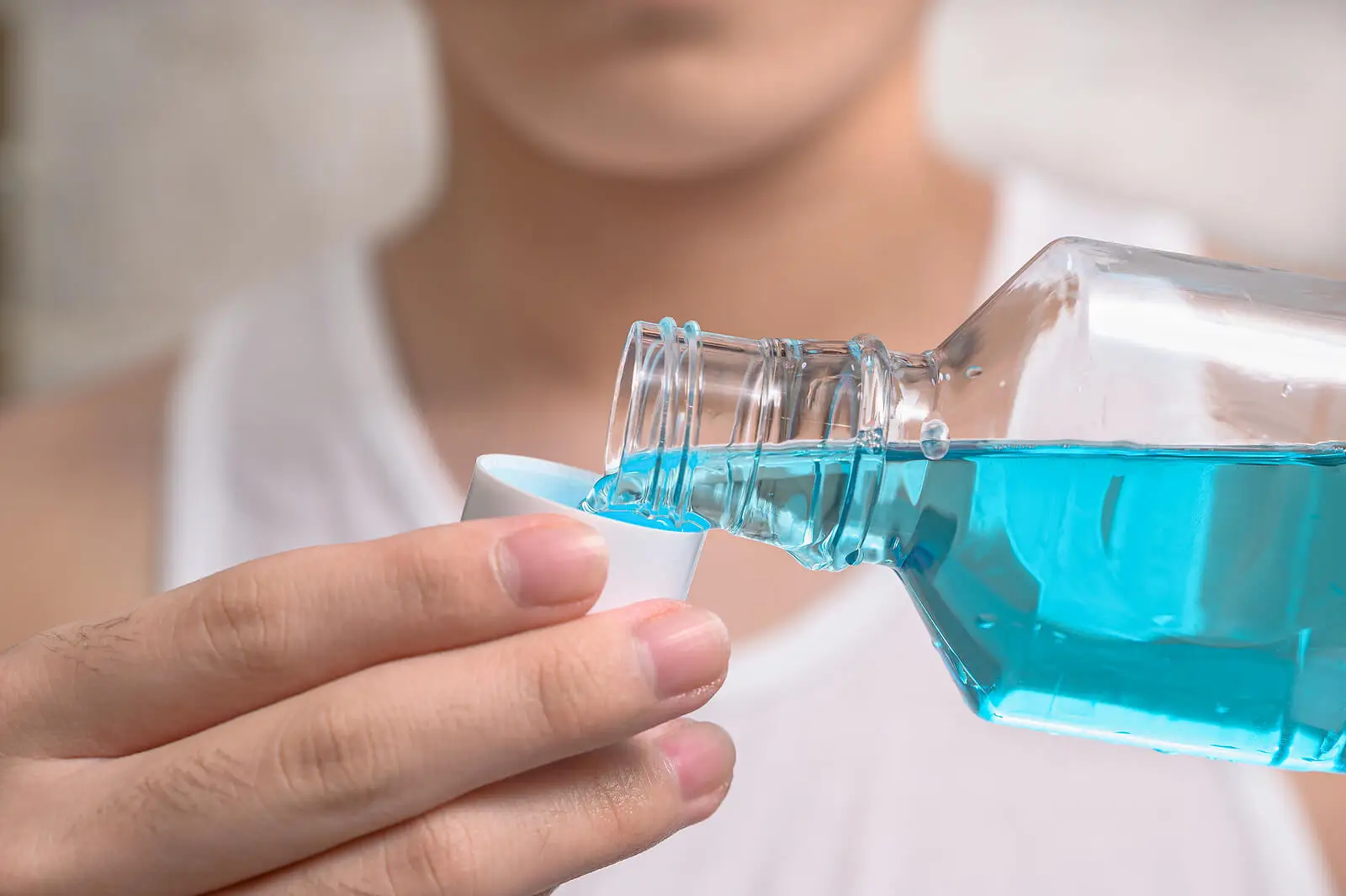8 Daily Tips for Good Oral Hygiene


Written and verified by the dentist Vanesa Evangelina Buffa
Good oral hygiene is essential for your mouth to perform its functions normally. A healthy set of teeth will allow you to bite, speak, eat and smile without problems.
It is not only about taking care of your appearance and wearing a beautiful smile to generate a better image. Neglect can lead to serious health problems.
Good oral hygiene helps to eliminate and control the accumulation of bacterial plaque. This prevents its harmful effects on teeth and gums and consequent oral diseases.
Here are the 8 tips you should keep in mind every day for good oral hygiene. Knowing what to do, how, when and with which products will allow you to enjoy your smile without problems.
8 daily tips for good oral hygiene
1. Brush your teeth correctly
The way you brush your teeth has a lot to do with the health of your teeth. You may think that moving the brush around in your mouth for a while is enough. But not taking the necessary time, doing it in a disorderly manner and not reaching all areas of the oral cavity can cause you problems.
That is why, when it comes to good oral hygiene, it is important to take enough time to perform this task correctly. You should place the toothbrush at an angle of 45° to the gums, with the bristles resting on the junction of the teeth and the gingival tissue.
The movements should be gentle but firm and should seek to clean and sweep all tooth surfaces of all the elements that are in the mouth. Therefore, brush the inner, outer and chewing surfaces of the upper and lower teeth.
To clean the inner surfaces of the anterior teeth, place the brush vertically and move it up and down. The whole process should take at least 2 minutes.
With these sweeping movements we seek to eliminate bacterial plaque. If you don’t clean this film of bacteria and debris, it accumulates and hardens forming tartar, causing cavities, gingivitis and bad breath.

2. Clean your mouth frequently
Ideally, we should clean our mouth twice a day, as suggested by the American Dental Association (ADA). In some patients with a higher risk of oral pathologies or who wear orthodontic appliances, it is preferable to clean their teeth after every meal.
Brushing in the morning, at the beginning of the day, helps to remove plaque that accumulates during the night, when saliva production is lower and bacteria proliferate more. With this first brushing you will start your day with a clean mouth and fresh breath.
Oral hygiene at night, before going to sleep, is also very important. Brushing your teeth before going to bed eliminates the bacterial plaque that has accumulated throughout the day.
3. Don’t overdo it
Exaggerated, too frequent, too long or too intense cleaning can be counterproductive. Brushing teeth too much or with too much force and pressure can wear down the enamel that protects the teeth.
Enamel is a very strong dental tissue, capable of protecting the teeth from everything that happens inside the mouth. Eating and drinking food at different temperatures and with different textures, chewing and starting the digestive process without inconveniences in the teeth, is possible thanks to this mineral layer.
But if the teeth lose their most superficial layer, the underlying dentin is exposed. This tissue is not prepared for contact with the outside, which could lead to problems of sensitivity or pain.
Brushing too hard can also damage the gums. When excessive force is applied, the gingival tissue retracts, leaving part of the tooth root exposed. This predisposes to pain, sensitivity and neck decay.
Read Oral Rehabilitation on Implants: What Does This Treatment Consist Of?
4. Choose the right toothbrush for good oral hygiene
To perform a good oral hygiene it is necessary to have the right elements. Choosing the most appropriate toothbrush for your mouth will allow you to reach all areas of yourmouth with ease and clean it properly.
There are toothbrushes with different types of bristles, shapes and sizes. The ideal is to use soft bristles so as not to damage the enamel and gums.
The size of the brush head should not be too large, so as to clean each area of the mouth in parts. In terms of design, shape and material, it will depend on the tastes and needs of each person.
Toothbrushes can also be differentiated between manual and electric toothbrushes. Both are capable of performing adequate oral hygiene if used properly. Although electric toothbrushes can make the process easier for some people.
It is important to remember that the toothbrush must be in good condition to fulfill its purpose. Whether electric or manual, it is recommended to renew them every 3 months or sooner if the bristles are open or show signs of wear.
5. Don’t neglect your tongue
Tongue cleaning is another fundamental aspect to consider when it comes to good oral hygiene. Bacterial plaque also accumulates in the irregularities on the surface of this organ.
The persistence of bacteria and food debris on the tongue dorsum can cause bad breath and a tasteless tongue. That is why it is important to clean it every day.
Ideally, you should have a tongue cleaner. This is an instrument specially designed to scrape the tongue surface and remove all the debris that accumulates there.
Not having this accessory is not a reason to neglect the tongue. If you do not have it, you can use a toothbrush specially designed for cleaning the organ.
To clean the tongue, sweeping movements should be made from back to front, until you reach the tip. This should be repeated again and again, rinsing the cleaner on each pass, until the entire organ is sanitized.
6. Choose toothpastes with fluoride
Toothpastes are a good complement to help clean teeth and prevent many mouth diseases. They come in different flavors and with different compounds that provide specific benefits.
When choosing the best product for your mouth, it is best to consult your dentist. The professional will be able to indicate the most suitable toothpaste for your needs.
In any case, the ideal is to choose a toothpaste that contains fluoride. This natural element is able to prevent cavities, reduce bacterial proliferation and strengthen tooth structure.
7. Use dental floss every day
The use of dental floss is essential for good oral hygiene. This element allows us to clean the area between tooth and tooth, where the bristles of the toothbrush cannot reach.
The method most commonly used by adults consists of cutting a 50 cm long piece of dental floss and wrapping it around each middle finger of both hands. Then, by applying pressure with the index finger and thumb, the floss is passed between the teeth.
Up and down movements should be made for the upper teeth and from bottom to top for the lower elements, reaching up to the gum line. Press against the wall of one of the teeth forming a C shape. Then, the cleaning is repeated, scraping the side of the other tooth in the same space.
This is repeated for each of the spaces between teeth throughout the mouth. As we clean, we unwind unused floss from one middle finger and roll the used floss over the other middle finger.
For some people, flossing can be difficult, especially children. But don’t give up. Practice helps to acquire the necessary dexterity.
In addition, there are attachments that make flossing easier, such as floss holders. These are plastic instruments that can hold the floss and also have an area to comfortably grip and access each interdental space.
Some come with the floss already attached and are disposable. Others require new floss to be attached each time they are used.
8. Consider using mouthwash for good oral hygiene
Rinses are a great addition to good oral hygiene. These liquids help clean areas of the mouth that are difficult to access with other methods.
The rinse is used at the end of the oral hygiene routine, after brushing, flossing and tongue scraping. Take a measure of the product into the mouth and circulate it throughout the tissues without swallowing.
The liquid moves around the mouth as per the instrutions of a dentist or product manufacturer. In general, it is usually about 1 minute. Then the whole product is spit out.
There are mouthwashes with different components that provide them with special characteristics for different oral needs. It will always be the dentist who will recommend the best product to use in each mouth.
Thus, there are rinses with antiseptics that help reduce bacteria, very useful in patients with periodontitis. Others contain fluoride to remineralize teeth and reduce the risk of caries or reduce sensitivity.
There are also some rinses with whitening effects. These help preserve the results of teeth whitening treatments.

Other tips to take care of your oral health
The tips we share here will help you practice good oral hygiene every day. But there are other issues that you should also pay attention to in order to keep your mouth healthy:
- Drink plenty of water: drinking water with meals also helps eliminate food debris and keep the oral cavity cleaner. In addition, a hydrated and moist mouth can better counteract bacteria.
- Eat a balanced diet: a nutritious and healthy diet, with adequate intake of vitamins and minerals such as calcium, fluoride and phosphorus, promotes healthy teeth and gums.
- Limit sweet and acidic foods: reducing the intake of sugary, ultra-processed or acidic foods also benefits the teeth. If you want to take care of your mouth, you must also consider reducing the consumption of soft drinks, sweets and industrial pastries.
- Avoid smoking: Smoking has harmful effects on the whole body and the mouth is no exception. Quitting smoking is always a decision that is good for your health.
- Visit the dentist at least twice a year: regular check-ups and cleanings, every 6 months, allow you to keep your mouth healthy. In the event that a condition appears, detecting and treating it in time improves the prognosis and avoids more invasive and uncomfortable treatments.
The benefits of good oral hygiene
Having a healthy mouth will allow you to smile with confidence and use your mouth normally. Biting, eating and talking will be no problem for you.
Practicing good oral hygiene will not only make you feel more comfortable and confident in your mouth, but will also help you avoid diseases that could cause discomfort, pain and complications. If you take care of your oral health properly, you won’t have to think about black or broken teeth, pain when biting or bad breath when speaking.
With these tips for good oral hygiene you will be able to take care of your mouth as it needs and benefit from a healthy and beautiful smile.
All cited sources were thoroughly reviewed by our team to ensure their quality, reliability, currency, and validity. The bibliography of this article was considered reliable and of academic or scientific accuracy.
- Alva, M. A. C., Santos, A. A. C., & Moreira, A. C. (2018). Sensibilidad dentaria: causas y tratamiento. Revista Mexicana de Estomatología, 5(1), 65-67.
- Singh, S., Singh, D., & Macedo, M. B. L. (2022). Dispositivos para remoção da saburra lingual: revisão de literatura. Research, Society and Development, 11(6), e54411629554-e54411629554.
- Félix Corrales, C. A. (2018). Relación entre la remoción del cubrimiento lingual y los niveles de compuestos volátiles sulfurados utilizando un limpiador lingual vs un cepillo dental.
- González, R. J., Carrillo, A., Santana, H. L., Urrutia, A. F., & Calva, J. C. (2020). 37. FLUOR MITOS Y VERDADES. Revista de la Academia Mexicana de Odontología Pediátrica, 32(S1), 30-31.
- Malca, M. C., Pari, M. E. C., & Portaro, C. P. (2021). Uso del Hilo dental asociado al cepillado¿ Qué dice la evidencia científica?. Revista de Odontopediatría Latinoamericana, 11(Suplemento).
- Pérez Guamán, O. A. (2021). Métodos de prevención de caries en dientes temporales (Bachelor’s thesis, Universidad de Guayaquil. Facultad Piloto de Odontología).
- Tigselema Mena, S. E. (2020). Enjuagues bucales para el control de placa bacteriana (Bachelor’s thesis, Universidad de Guayaquil. Facultad Piloto de Odontología).
- Páez, C. A. V., Castillo, E. L. T., & Ávila, J. A. T. (2021). Higiene bucal como factor determinante en incidencia de caries dental niños de 6 a 12 años. ReciMundo, 5(1), 227-240.
- Casals-Peidró, E. (2005). Hábitos de higiene oral en la población escolar y adulta española. Rcoe, 10(4), 389-401.
This text is provided for informational purposes only and does not replace consultation with a professional. If in doubt, consult your specialist.








